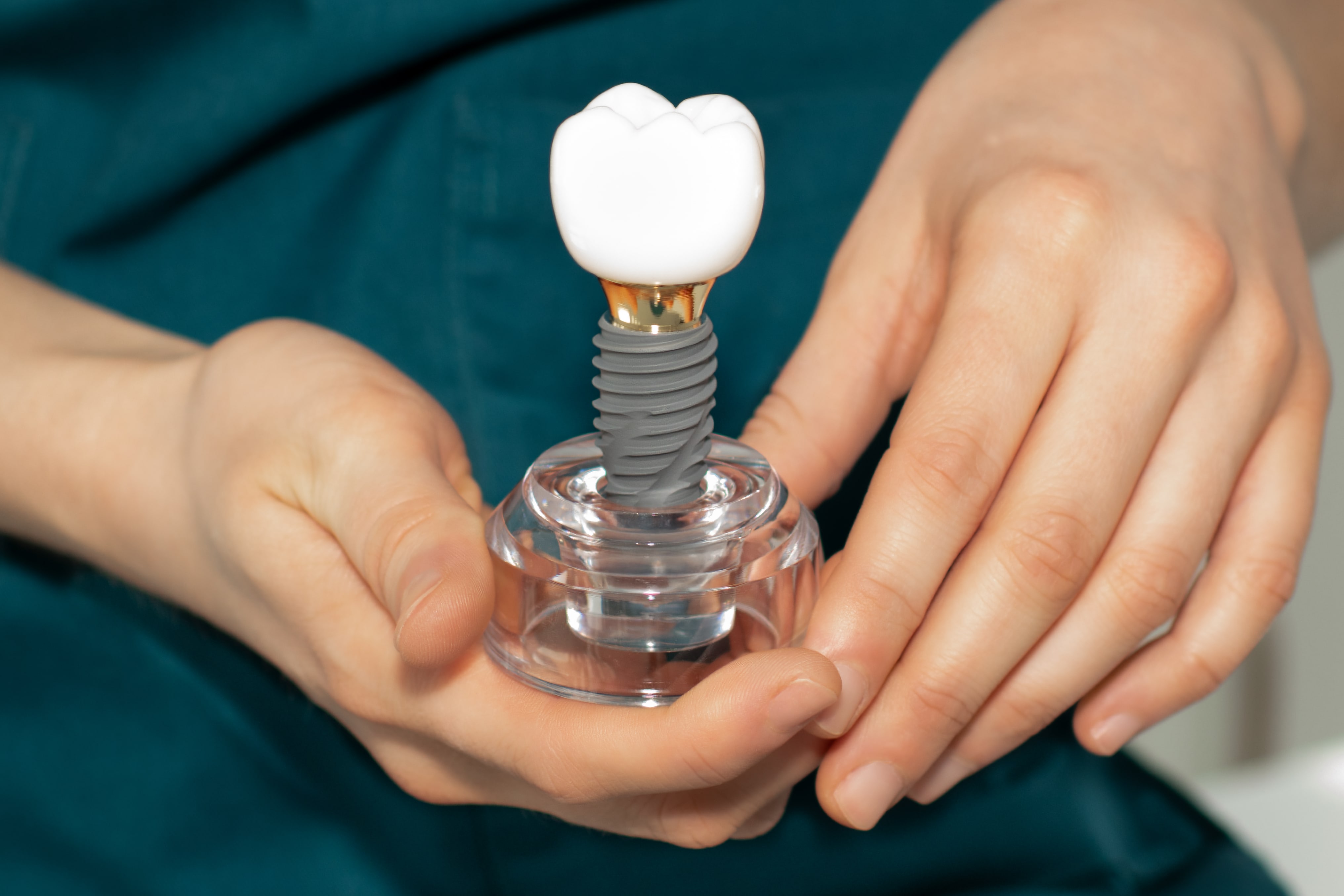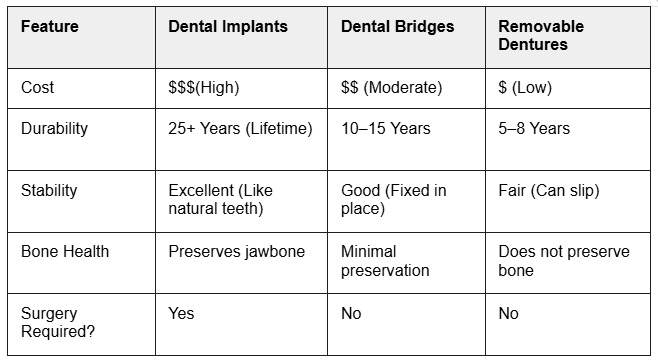When you have a tooth or teeth that need to be replaced, looking at the price tag of dental implants can be intimidating. While implants are often considered the "gold standard" of restorative dentistry, they aren't the only way to restore your smile.
At Nova Dental in Winchester, MA, we believe every patient deserves a complete smile that fits their budget. Whether you are looking for dental implants, dentures, or bridges, it is extremely important to have a missing tooth replaced to prevent bone loss and shifting of your remaining teeth.
Below, we break down what dental implants are, the best cheaper alternatives available, and how to decide which option is right for you.

Dental implants are titanium rods that attach to a dental crown (false tooth) or multiple crowns via an abutment. They essentially act as an artificial tooth root.
Why are they the "Gold Standard"?
However, because they require surgery and high-quality materials, they are generally the most expensive option.
When faced with high dental costs, it is tempting to simply do nothing and leave the space empty. However, this is often the most expensive choice in the long run due to a process called resorption.
When a tooth is lost, the jawbone in that area no longer receives stimulation from chewing. As a result, the bone begins to shrink almost immediately. Studies show that you can lose up to 25% of your jawbone width in the first year alone after an extraction. Over time, this bone loss can lead to:
If the cost of implants is prohibitive, or if your insurance coverage is low, here are the three most common alternatives we offer at our Woburn office.
A dental bridge is often the most popular alternative to an implant for a single missing tooth. It consists of a false tooth (pontic) held in place by dental crowns that are cemented onto the healthy teeth on either side of the gap.
If you need to replace multiple teeth or a full arch, removable dentures are often the most affordable option.
This option bridges the gap between traditional dentures and full implants. We place just two or four implants to "snap" a denture into place.
To help you decide, we’ve compared the three main options below.

When comparing costs, it is vital to look at the "lifetime value" of your investment. A dental bridge or denture is almost always cheaper today, but they are not permanent solutions.
Consider the math: If you pay for a bridge today, you may have to pay for it again in 12 years, and potentially a third time in 24 years. Over three decades, you might pay for three bridges—costing far more than the one-time cost of a single dental implant.
If you search online, you will likely see ads for "$999 Implants" or offers for "Dental Tourism" packages abroad. We urge caution with these options.
In dentistry, you generally get what you pay for. Extremely low-cost implants often cut corners in ways that aren't immediately visible:

"Cheaper" doesn't have to mean choosing a different procedure; sometimes it just means finding a smarter way to pay.
Yes, generally speaking, a dental bridge has a lower upfront cost than a dental implant. However, because bridges may need to be replaced after 10–15 years, an implant might be more cost-effective over your lifetime.
Yes. This is often called a "partial denture" or a "flipper." It is usually the least expensive way to replace a single missing tooth, though it is often considered a temporary solution.
Many insurance plans classify implants as "cosmetic" and may not cover them, though this is changing. However, most insurance plans will cover a portion of dental bridges or dentures. We can help you check your benefits at our Woburn office.
Whether you decide to go with dental implants, a bridge, or dentures, the first step is an assessment. We will perform an oral exam and X-rays to see which options your jawbone can support.
Don't let cost keep you from smiling. Contact Nova Dental today at (781) 369-5722 or request an appointment online to discuss your options.